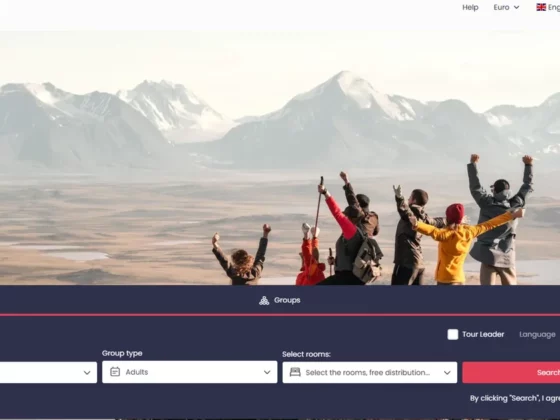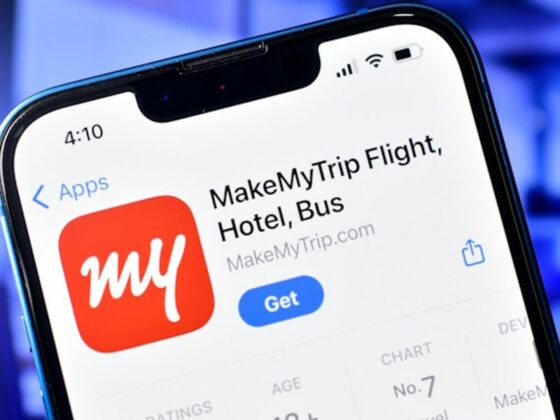As seen in our previous article about application program interfaces, or APIs, are the “backbone of any digital network of programs. They are how we connect the various hospitality software, applications, and programs that keep our hotel operations running on a daily basis.” Given the increasing amounts of hotel APIs and other technologies being created by various vendors and utilized in the hospitality industry, integrations between the numerous software and programs in a hotel are becoming of paramount importance. Without APIs to break down the barriers between different systems, what is the point of purchasing and installing all of this hotel technology if they cannot even connect to each other?
To put it simply, an API is the intermediary between two types of technology that allows them to communicate with one another. The API is essentially the middleman who receives requests from one program and sends responses from the other.
With the growing number of PMS, POS, data dashboards, social media platforms, analytics tools, communication applications, etc., there is the subsequent need for more open hotel APIs to allow for all of these systems to integrate and work together. There are countless hotel applications being developed. Without APIs, your hotel PMS would not be able to benefit from these new applications and keep up with competitors who are advancing in hotel technology.
What’s new for Hotel APIs in 2023?
- Increased Adoption of Cloud-Based Solutions
The hospitality industry has witnessed a significant shift towards cloud-based solutions, resulting in a greater emphasis on APIs to enable seamless integration and data exchange across platforms. - Rapid Growth of Mobile Technology
With the continued proliferation of mobile devices, APIs play a crucial role in enabling mobile applications to connect and interact with various hotel systems, enhancing guest experiences, and streamlining operations. - Rise of Personalization and Guest-centric Experiences
APIs are now leveraged to access and analyze guest data from multiple sources, allowing hotels to deliver personalized experiences, tailored recommendations, and targeted marketing campaigns. - Integration with Emerging Technologies
As emerging technologies like artificial intelligence (AI), Internet of Things (IoT), and voice assistants gain traction in the hospitality industry, APIs are instrumental in integrating these technologies with existing hotel systems, enabling automation and enhancing operational efficiency. - Emphasis on Data Security and Compliance
In light of increased data privacy concerns, there is a heightened focus on implementing robust security measures and ensuring compliance with regulations such as the General Data Protection Regulation (GDPR) and other data protection laws, influencing API design and implementation. - API Marketplaces and Ecosystem Expansion
The growth of API marketplaces and platforms has made it easier for hotels to discover, evaluate, and integrate with a wide range of third-party applications, enabling them to access innovative solutions and stay ahead in a competitive market. - Customer Expectations and Digital Transformation
As guest expectations evolve in the digital age, APIs serve as enablers for hotels to undergo digital transformation, enabling seamless interactions, personalized services, and frictionless experiences throughout the guest journey.
Summary of Hotel API Categories
For the sake of better understanding hotel APIs, we have identified them as categories and types. When it comes to hotel API categories, we are referring to the functionality of the API and how they are applied in a hotel. API types, on the other hand, are the technical terms that describe the protocols in an API.
According to ProgrammableWeb, as of early 2018, there were over 19,000 listed available APIs and the number continues to increase with time. Currently, their directory lists 112 APIs relevant to the hospitality industry. Meanwhile, HTNG has created an API Registry to provide details on hotel APIs, in addition to integrations, products, and companies. With the shared goal of further integrating the technology of the hotel industry, these lists have helped to gather and present hotel APIs to the hoteliers in an industry that has traditionally been private and non-transparent. To better understand the types of hotel APIs, we have broken it down into three categories: operations, distribution, and guests and analytics.
Operations: The Cross-functional Hotel API
Operations APIs are more commonly referred to as the Property Level Interface and are described as pretty standard APIs available from most PMS. These APIs can be used to manage door locks, credit cards, telephones, food and beverage systems, and other similar systems. When it comes to functionality, operations APIs can integrate with your PMS or other systems to check or change room occupancy, check customer details with check-in and check-out, and manage reservations and housekeeping schedules. The systems that most frequently use operations APIs in a hotel are PMS, POS, keycard systems, and AC systems.
Distribution: Hotel Availability APIs and more
Distribution APIs are can also be known as ARI (Availability, Rates and Inventory). This is where hotels can access hotel availability APIs, for example. Their functionality mainly consists of delivery reservations, retrieving or modifying rates and occupancy. These types of APIs are used by OTAs, booking engines, and CRS systems to distribute rates and reservations across systems. They are mostly dependent on the CRS and PMS for availability.
Guests and Analytics: How Leveraging Hotel APIs Can Improve Guest Experience
Guests and analytics APIs provide guest information, email, and profile data. While they mainly rely on PMS, they are also often complemented by external data such as social profiles and CRS data. The main uses are revolving on personalization and marketing. In regards to practicality, guests and analytics APIs fetch or update guest information and show guest information. The systems that mostly use these APIs are customer/guest relation managers.
Out of all the three categories, operations APIs are the most common one used as even small hotels which handle distribution have a credit card interface. Nonetheless, it is dependent of the establishment, only the very advanced ones will have connectivity for guest and analytics, while many others stick to operations and distribution, in some shape or form.
Types of Hotel APIs
Unfortunately, APIs aren’t as simple when it comes to the actual programming and coding. There are many different kinds of APIs, whether they are protocols or web services. Two of the most used APIs are RESTful, or REST, and SOAP, which both use various formats and codes.
While most hoteliers don’t require using these technical terms for their day-to-day jobs, it is important for the decision-makers in hotels to have a general understanding of the types of APIs to better manage their properties. For instance, if a general manager wanted to enhance their hotel’s PMS by integrating with a guest analytics tool, they would need to research and select from a handful of options available in the market. All of these guest analytics tools would be built by different developers using varied API types. Thus, if the general manager already had a broad idea of the different types of APIs, they would be able to make a well-informed decision without having to spend time consulting with the IT department.
In order to ask vendors specific questions about their open APIs, it is best to understand the technical types and the advantages and disadvantages to each one.
RESTful API
A RESTful API breaks down a transaction to create a series of small modules. Each module addresses a particular underlying part of the transaction. This modularity provides developers with a lot of flexibility. RESTful APIs are based on a newer and often more flexible system than SOAP APIs.
SOAP API
SOAP is a messaging protocol that allows programs that run on disparate operating systems (such as Windows and Linux) to communicate using Hypertext Transfer Protocol (HTTP) and its Extensible Markup Language (XML). Many newer APIs are based on RESTful standards.
SOAP and RESTful are web services, when there are also different types of schemas which are used to return the output from the RESTful and SOAP. Two main formats to exchange data between web services are JSON and XML.
JSON
JSON is a lightweight data-interchange format. It is easy for humans to read and write. It is easy for machines to parse and generate. It is used commonly within RESTful API.
- Pros – It has a leaner format. Additionally it has a low overhead allowing infinite flexible including nested objects for fast parsing
- Cons – It doesn’t have a validation support and limited primitives (strings, numbers, bools, objects)
XML
XML is a data-interchange format which is older than JSON and often contains more data. Most interfaces use one of these two. It is used within a SOAP or could be also used with RESTful API.
- Pros – XML provides great use when considerable volumes of data with numerous attributes are to be transfer between API messages. And if the validity of the data needed to be guaranteed XML could be used in combination with an XSD, this way it could be validated (by itself XML is no more valid than JSON).
- Cons – Some developers may consider the format to be complex and it adds to the overhead for data processing.
Which hotel APIs should I be asking my vendors about?
As we all know, hotels have numerous departments from revenue management to housekeeping to sales and marketing. In order to run operations smoothly, hotels employ a PMS that covers most of these divisions. However, as there are many add-on technologies available to hotels today, the number of vendors we are using continue to grow with each application or tool we install.
First off, if your hotel hasn’t selected a PMS yet, you should ask them if they provide open APIs since your PMS is the core of your hotel’s operations. If your PMS cannot connect to any of the other systems in your hotel or add-on applications, your functionality will be very limited.
APIs deal with large amounts of data, so is your data safe? It’s imperative that vendors use APIs with the appropriate security measures to protect the importing and exporting of data between technologies.
While open APIs grant access and connectivity with other technology software’s data, it is important to clarify with the vendor exactly what type of information you will be able to see and use. While more and more types of data are expected to be available as APIs develop, it is still crucial to ask your vendor exactly what you will be receiving through their API and when.
Worried about your data’s security? Here are some suggested security messages taken to protect breaches in open APIs:
- Most current version of communication security (HTTPS/TLS 1.2 or 1.3) and ideally encryption above and beyond what is provided by HTTPS/TLS
- Reverse proxy URL
- Client certificate
- Advanced authentication models such as OAuth 2.0
- Authentication/role model
- Access to a limited set of customers/accounts
- Ensure secure logging
At the end of the day, a hotel’s main priority is to provide the best experience for its guests while running a profitable business. However, with the increase in reliance on hotel technology, in order to meet these goals, hotels must use technologies that can communicate with one another. If you really think about it, APIs are everywhere in the hospitality industry – PMS, online booking platforms, reservation tools, messaging applications, social media platforms, guest review websites, and so on. As the industry becomes more and more connected with integrations and open data platforms, it’s becoming imperative to use technologies with open APIs.





